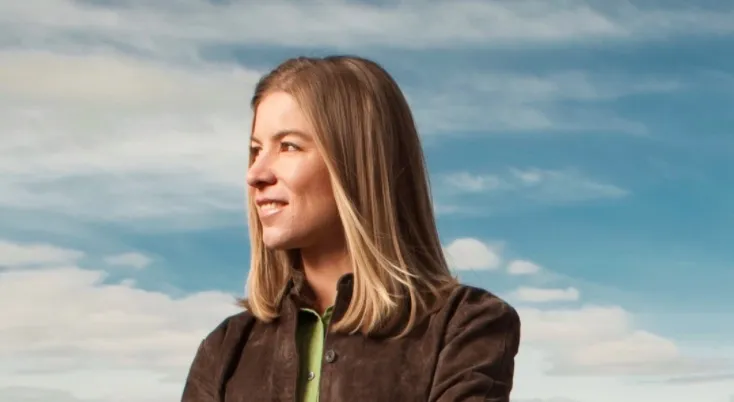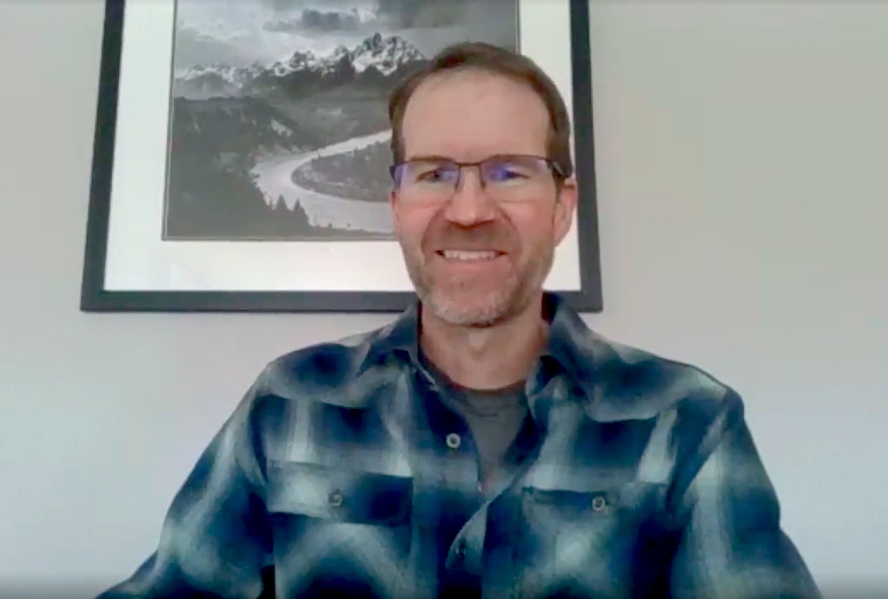NMU professor Scott Drum had a bold idea for engaging students online in his upper-level Physiology of Training for Sport class. He invited award-winning journalist and author Christie Aschwanden to field questions about her bestseller used by the class, titled Good To Go: What the Athlete in All of Us Can Learn from the Strange Science of Recovery. She accepted.
In addition to her book, which The Wall Street Journal called “deeply researched and artfully written,” Aschwanden formerly served as lead science writer at FiveThirtyEight and a health columnist for The Washington Post. She is a frequent contributor to The New York Times, Runner's World and Bicycling. Her work has appeared in dozens of other high-profile publications.
“My students could not believe we got her to attend the online meeting,” said Drum after the session on Google Meet. “Many asked her what she thought was the best recovery method for her, personally. Also, many students wanted to know which scientist she most enjoyed interviewing and quoting for the book.”
According to a description of Good to Go, Aschwanden set out to determine whether a host of rituals, products or services actually help the body recover and achieve peak performance.
She investigates whether drinking Gatorade or beer after training helps or hinders performance. She examines the latest trends among athletes, from NFL star Tom Brady's infrared pajamas to gymnast Simone Biles' pneumatic compression boots to swimmer Michael Phelps's “cupping” ritual. And she tests some of the most controversial methods herself, including cryochambers, float tanks and infrared saunas.
In response to a student's question about her preferred recovery method, Aschwanden offered a three-pronged reply, two of which require no monetary investment. She said she makes sleep a priority and arranges her life around it, even when travel or other factors disrupt her typical schedule. She also reserves some down time each day for relaxation, with no pressure to be productive or accomplish anything that resembles work.
“And I really like massage; it's still my favorite recovery technique,” Aschwanden said. “There's not really a lot of hard scientific evidence for what it's doing on a mechanistic physiological level, but I can tell you that one reason it's so effective for recovery is it makes you feel really good. You're taking an hour out of your life to relax and unwind on the table.
"It also helps with body awareness and checking in on where you're sore and whether you might need to try something else or require more rest. That's particularly true with professional athletes. I interviewed a number for this book, and so many told me they get massages as much as they can; not necessarily long ones each time, but they report feeling much better having their muscles massaged after a hard workout.”
Getting Aschwanden to discuss her book was considered a major coup, but it is only one of the ways Drum has tried to keep students engaged since NMU transitioned to online classes due to the COVID-19 outbreak.
“I assign certain parts of the online/PowerPoint notes to be presented by specific students about a day ahead of time before the online, synchronous presentation of the notes,” said Drum, who joined the NMU faculty in 2012 and is the undergraduate sports science coordinator. “I make my computer screen visible to all students and gently call on them to discuss and ask probing questions related to their set of notes. In this way, it's not me talking the whole time and attempting to call on each student because all of them are automatically engaged in the topic.”
Physiology of Training for Sport is a 400-level course in the sports science major. It offers an in-depth review of the physiological bases of training to optimize performance in sport and physical activity, with practical guidelines for developing and modifying specific training programs for athletes and performers in a variety of sports and activities.
For more information on the sports science major, click here.
Prepared by Kristi Evans and Charlie Edwards.


